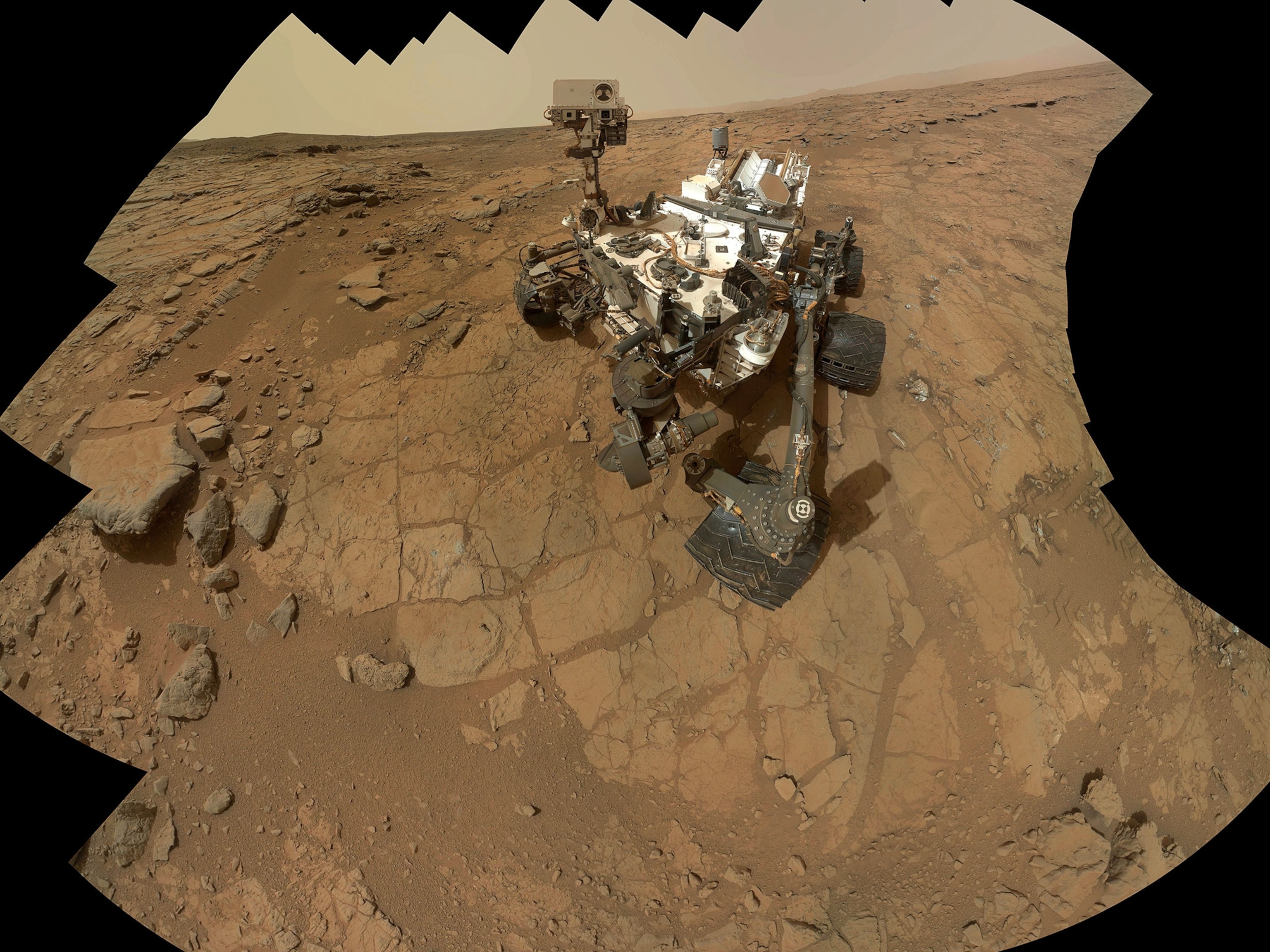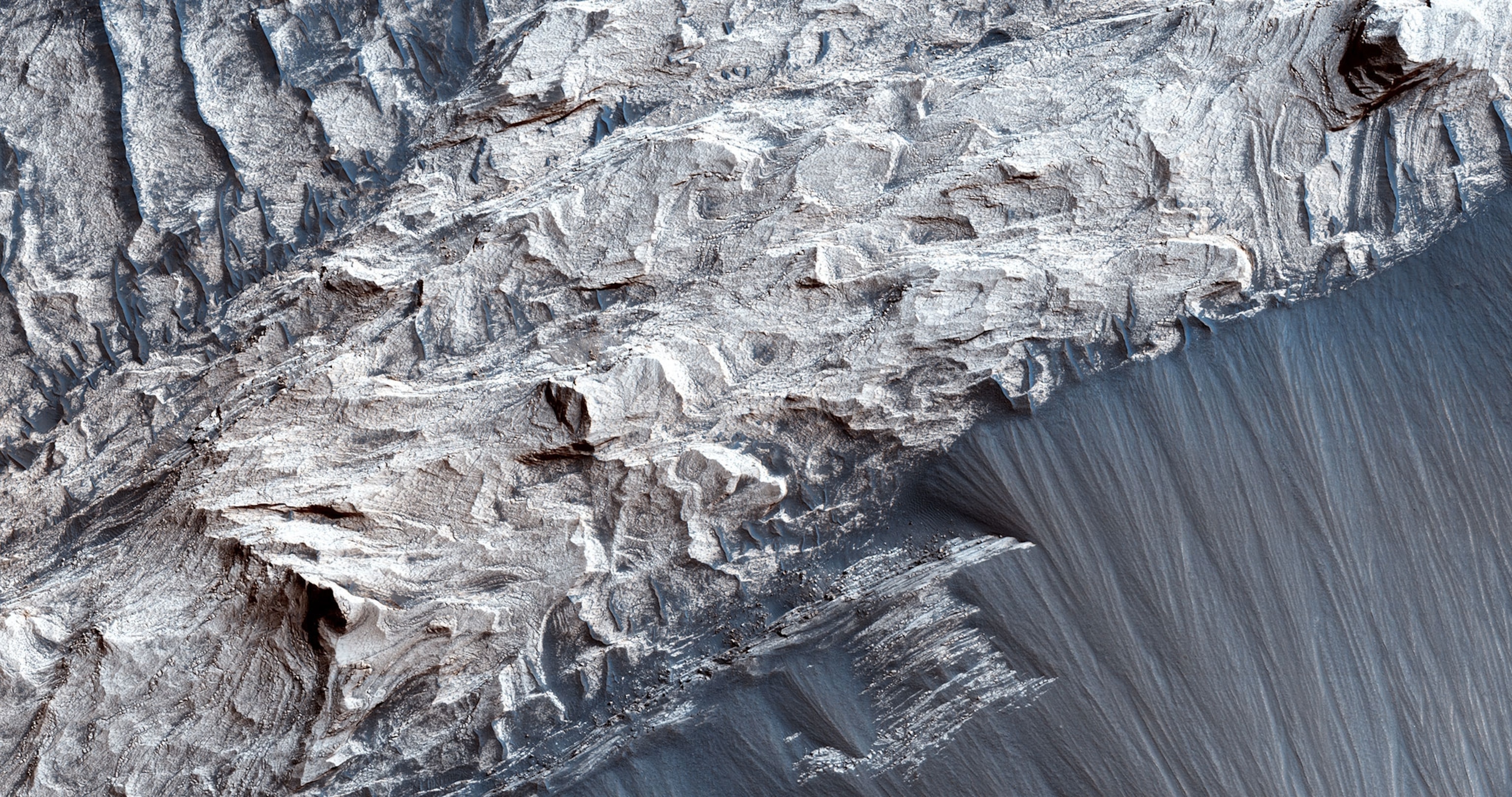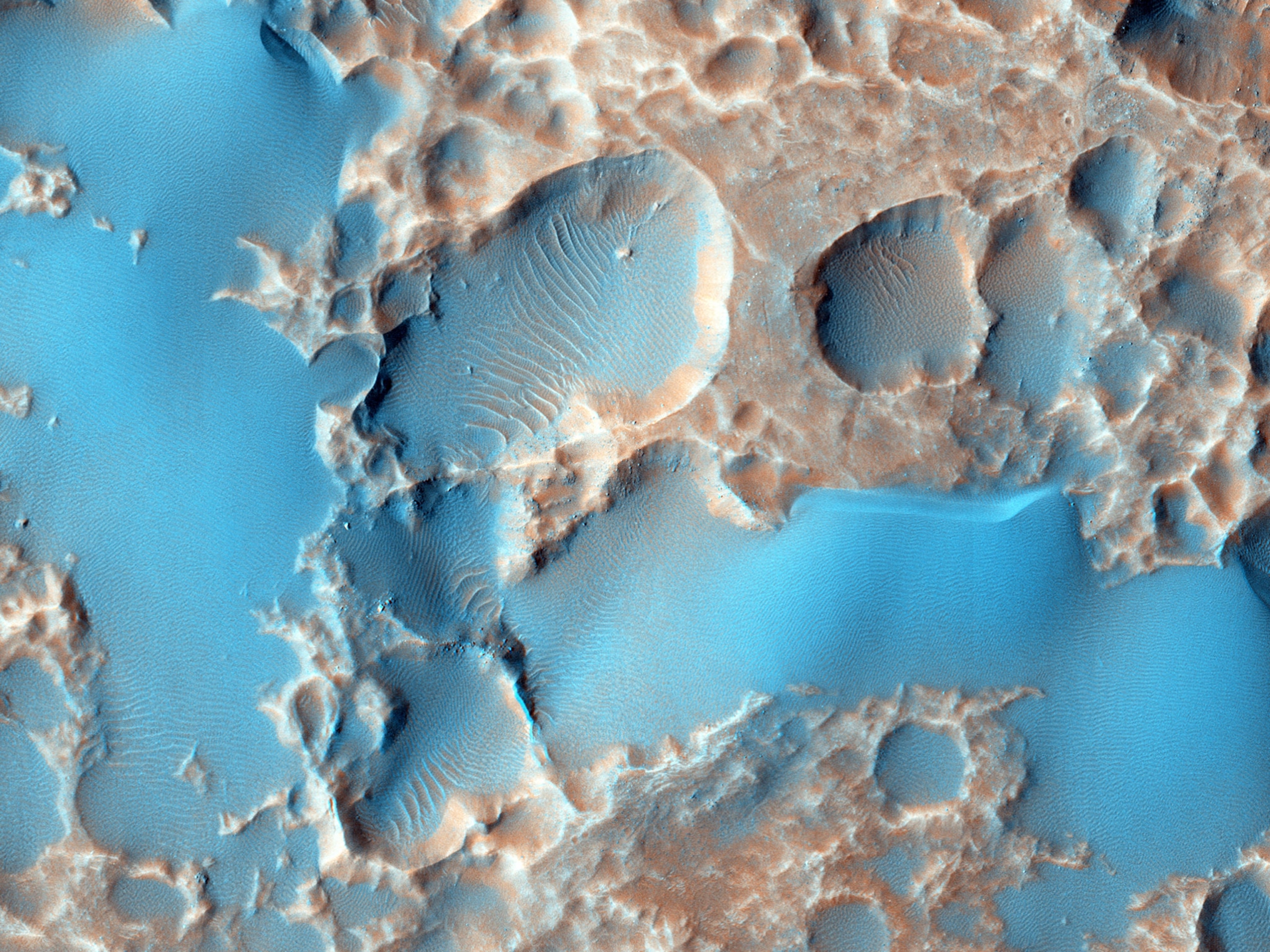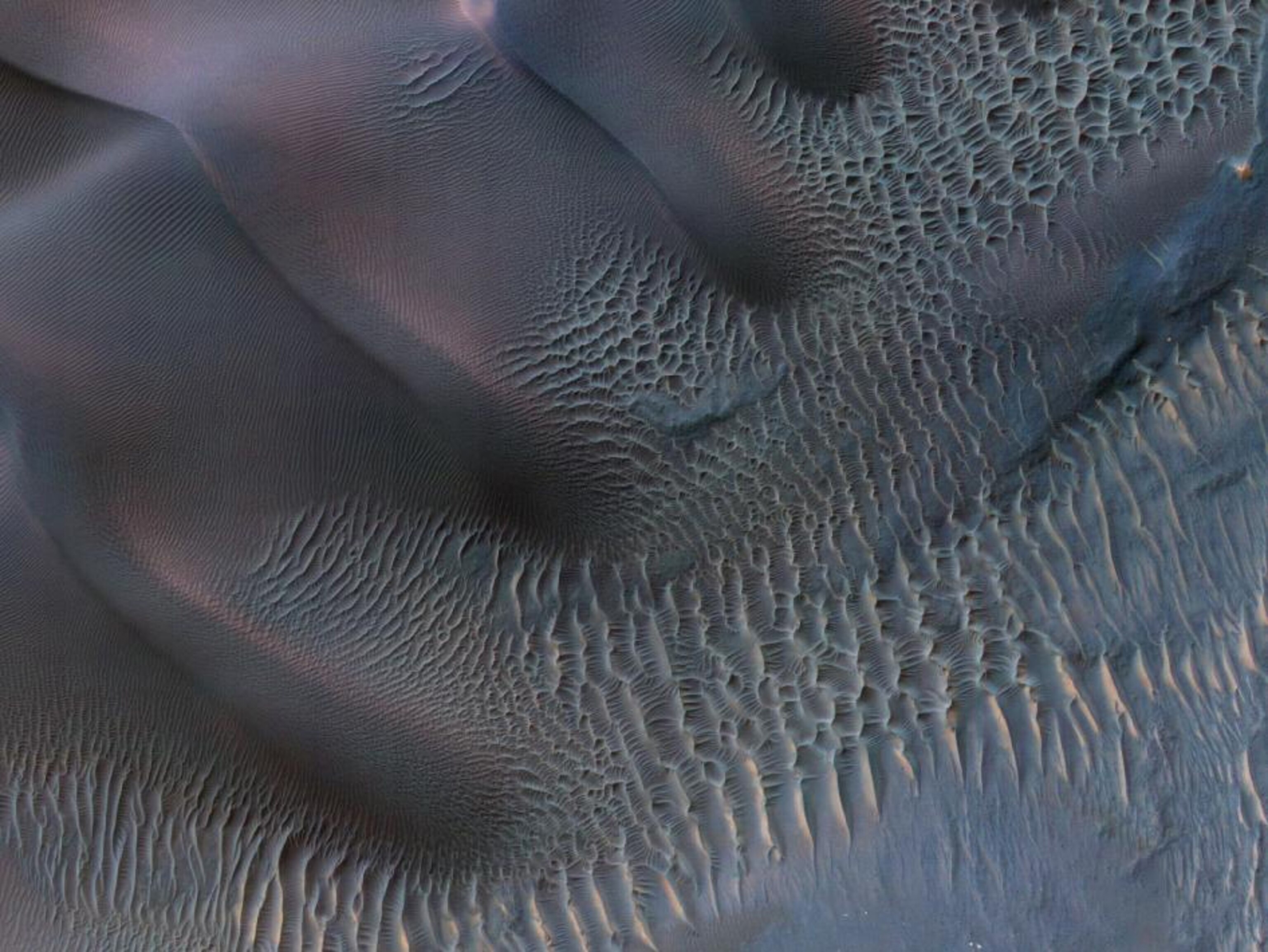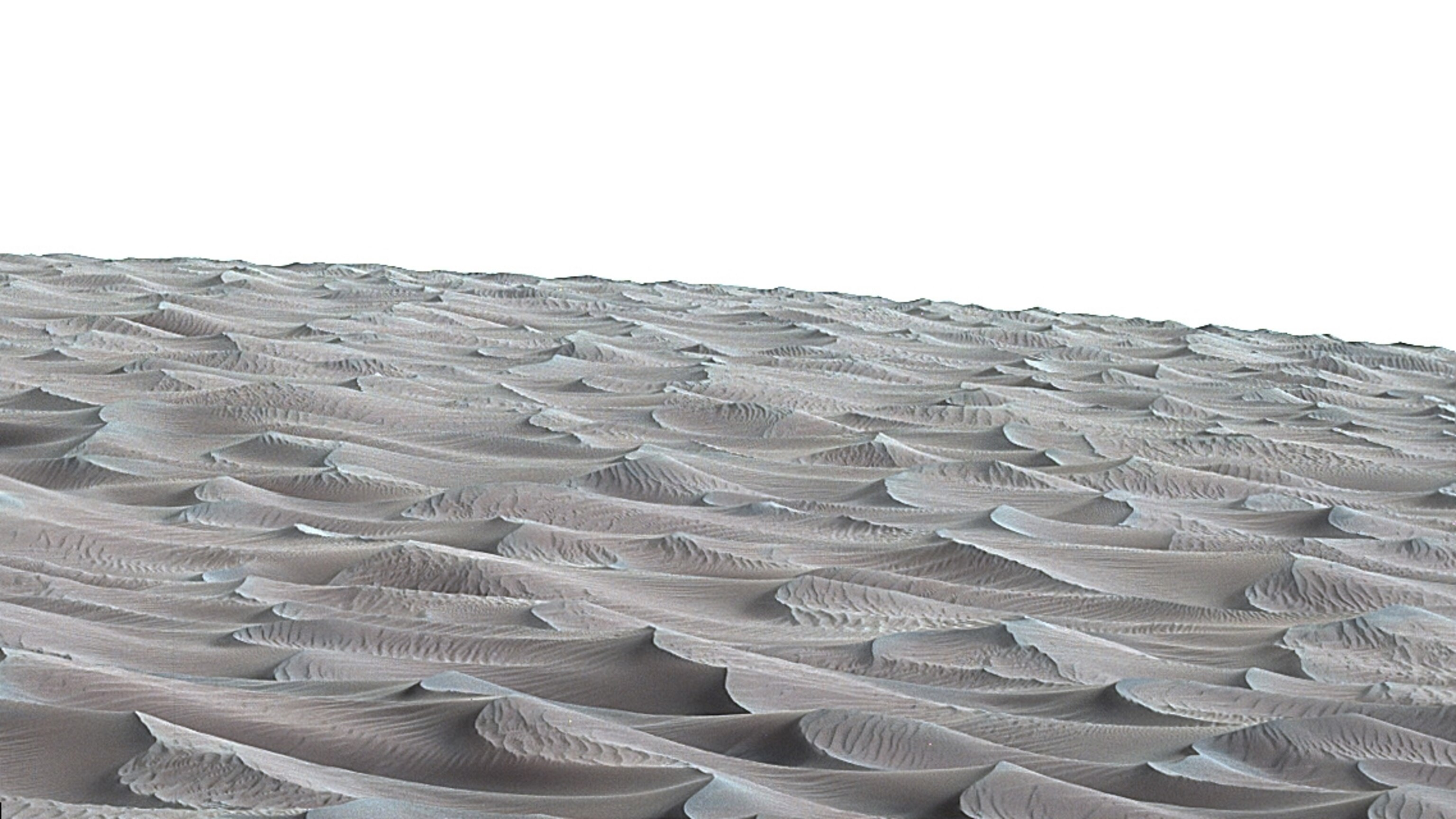
Weird Life Found in Earth's Driest Soil
Extreme microbes detected in the hyper-arid Atacama Desert hint at the ways organisms might eke out a living in the Martian underground.
Chile's Atacama Desert is about as close as you can get to Mars without hitching a ride on a rocket: salty, windswept, and so bone dry, it'd be easy to mistake it for being lifeless.
But a new study confirms that within these seemingly barren soils, life is waiting patiently for its chance to thrive. A few feet beneath the Atacama's surface, exceptionally hardy strains of bacteria, fungi, and other microbes have adapted to withstand punishing dryness, damaging ultraviolet radiation, and extreme saltiness.
Most of the time, these critters are inactive, but when liquid water makes its infrequent appearance, the microbes awake from their slumber and shudder to life. (Find out how weird our home world really is in One Strange Rock, premiering March 26 on National Geographic.)
The discovery, published today in the Proceedings of the National Academy of Sciences, demonstrates the incredible abilities of life on Earth to thrive in surprising places. What's more, the find hints at how life may have eked out a living on Mars after the planet's surface largely dried up billions of years ago. Perhaps Martian microbes have even hung on until today, waiting deep underground for the exceptionally rare dribble of water.
Roused by Rain
In comparison to Mars, which hasn't seen rain in eons, the Atacama may look paradise. But by Earth standards, the Chilean desert is hellishly dry. Some areas receive less than a quarter inch of rain a year, or less than one percent of the 20th-century average for annual rainfall in the continental United States. It's been so dry for so long, salts brought in on the wind have accumulated without being washed away.
To withstand bouts of dryness, organisms could feasibly dehydrate themselves and go inactive, but it's hardly a given that this hibernation will work. While the organisms may be protected from some damage, because they're inactive, their natural repair mechanisms aren't working.
“It's kind of darned if you do, darned if you don't,” says National Geographic grantee Penelope Boston, the director of NASA's Astrobiology Institute.
Previous studies had found signs of microbial life in the Atacama's hyper-arid soils, but it was possible that these microbes were wind-borne interlopers that promptly died in the harsh landscape. To tell whether anything truly lives there, researchers would need to track the soils over time, to see how they responded to changes in their environment.
In March 2015, a team led by Dirk Schulze-Makuch, an astrobiologist at Technical University Berlin, ventured into the Atacama weeks after a years' worth of rain fell in the region and triggered floods and dramatic flower blooms in some areas.
The team dug trenches up to three feet deep in areas they chemically determined were otherwise untouched by humans. They returned in 2016 and 2017 to collect more samples, to see how any microbes present changed as the desolate landscape dried out once again.
Back in the lab, team biologists examined the soil and found DNA, which revealed that wetter areas closer to Chile's coastline had larger, more diverse microbial populations than drier spots farther inland. They also saw evidence of a molecule called ATP—cells' universal currency for storing and transporting energy—as well as the building blocks for cell membranes.
As the soils dried out after the 2015 rains, researchers watched as ATP levels decreased—exactly what you'd expect to see if microbes awakened by rain had reentered hibernation.
The findings are a testament to “the amazing adaptability of life even to sustain itself ... where it rains sometimes only once a decade,” says Schulze-Makuch. “Just a bit of moisture, and life can persist and make that area—with very little water, high UV irradiation rates, and chemical stresses—a habitat, at least a transient one.”
Drilling for Clues
Researchers say that the results could help inform future searches for life on Mars, but let there be no mistake: Mars is even less hospitable than the Atacama.
The red planet's far thinner atmosphere and lack of a planetary magnetic field mean that solar and cosmic radiation easily reaches the surface. These rays can damage cells directly and spawn powerful oxidants, including the chemicals that make up bleach.
“These things just eat up organic compounds, so it's very unlikely that any life exists on the surface of Mars,” says study co-author Samuel Kounaves, a Tufts University chemist and former lead scientist for NASA's Phoenix Mars lander.
Future missions to Mars will have to dig many feet underground to have a shot at finding life. At least one mission in the queue fits this bill: The European Space Agency's ExoMars rover, due to land in 2020, has a drill capable of digging more than six feet underground.
In the meantime, research will continue in the Atacama and other dry spots on Earth, giving scientists valuable, if imperfect, clues to the nature of our rust-colored neighbor.
“They’re absolutely critical,” says Boston of these earthly sites. “But none of them are Mars.”
